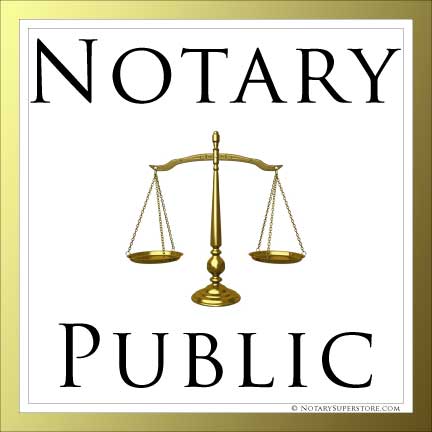Demystifying Notarial Work: Streamlining the Duty and Value of Notaries
In the intricate web of legal paperwork and confirmation, notaries stand as columns of guarantee and credibility. Their role, commonly shrouded in mystery for lots of, lugs considerable weight in ensuring the credibility and integrity of essential documents. As guardians of legitimacy and fact, notaries play a critical component in our culture, yet their work is not always totally understood. By deciphering the intricacies losing and bordering notarial techniques light on the importance of their acts, a more clear understanding arises of the crucial duty notaries play in promoting the material of lawful and legal contracts.
The History of Notarial Work
How did notarial work evolve over time to come to be an indispensable part of lawful and service transactions? The background of notarial work days back to ancient civilizations, where scribes played an important function in tape-recording essential information and authenticating records. As societies proceeded, the requirement for an extra formalized system to guarantee the legitimacy of agreements occurred. This resulted in the development of notaries, people designated by the state to act as objective witnesses in lawful matters.
Throughout the Middle Ages, notaries got prestige in Europe, with their features broadening to consist of drafting lawful files, certifying signatures, and maintaining records. The surge of worldwide profession even more stressed the value of notarial operate in verifying agreements and arrangements across boundaries.
In the modern age, notaries proceed to play a vital duty in lawful and business deals by validating identities, verifying the credibility of records, and protecting against fraud. Their role in certifying the legitimacy of contracts adds a layer of security and depend the ever-evolving landscape of business and regulation.

Duties and Responsibilities of Notaries
Notaries play an essential role in validating the authenticity of papers and the identification of notaries. One of their main responsibilities is to witness the finalizing of important papers, such as wills, contracts, and acts, to guarantee that all celebrations are getting in into contracts knowingly and willingly.
They accredit duplicates of initial documents, providing assurance to organizations that the copies are true replicas of the originals. Generally, the tasks and obligations of notaries are essential in protecting the stability and legality of various records and purchases - Notary.
Notarial Certificates and Signatures
Exemplifying meticulous focus to information, notarial certifications and trademarks function as essential parts in verifying the credibility of legal papers. Notarial certifications generally consist of critical details such as the day of registration, the names of the notaries, a summary of the file, and the notary's official seal. These certifications give a clear record of the notarial act, guaranteeing that the document can be conveniently determined and traced back to the notary that looked after the procedure.
Signatures play a critical role in notarial job, as they represent the agreement and permission of the events included. Notaries carefully witness the finalizing of documents to validate the identity of the notaries and validate that they are signing of their very own free choice. By affixing their official seal and trademark to the paper, notaries certify that the needed procedures have actually been followed and that the document is enforceable and legitimate.
Essentially, notarial certifications and trademarks are the trademark of credibility in legal purchases, giving assurance to all parties involved that the papers are genuine and binding.
Importance of Notarial Acts

Notarization Process Described
The notarization procedure normally starts with the private providing the file to a notary public. Once the identity is validated, the notary makes certain that the individual signing the file does so voluntarily and without any browbeating.

Conclusion

Notarial certifications commonly consist of essential info such as the date of registration, the names of the signatories, a description of the record, and the notary's main seal. These certificates offer a clear browse around these guys record of the notarial act, making certain that the file can be quickly recognized and traced back to the notary who oversaw the process.
By fastening their official seal and trademark to the file, notaries license that the essential procedures have actually been complied with and that the record is enforceable and valid.
By validating the identity of the signatories, verifying their desire to enter into the arrangement, and accrediting Deceased Estate the day and area of the finalizing, notaries play a crucial function in promoting the validity of legal papers.After the file is signed, the notary will affix their official seal or stamp onto the file.
Comments on “Apostille Refine Explained: Simplifying International Record Confirmation”